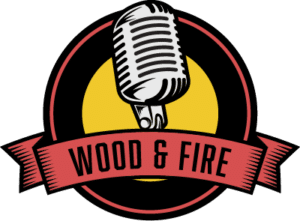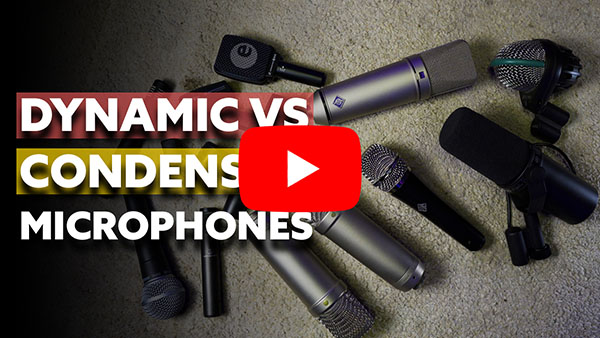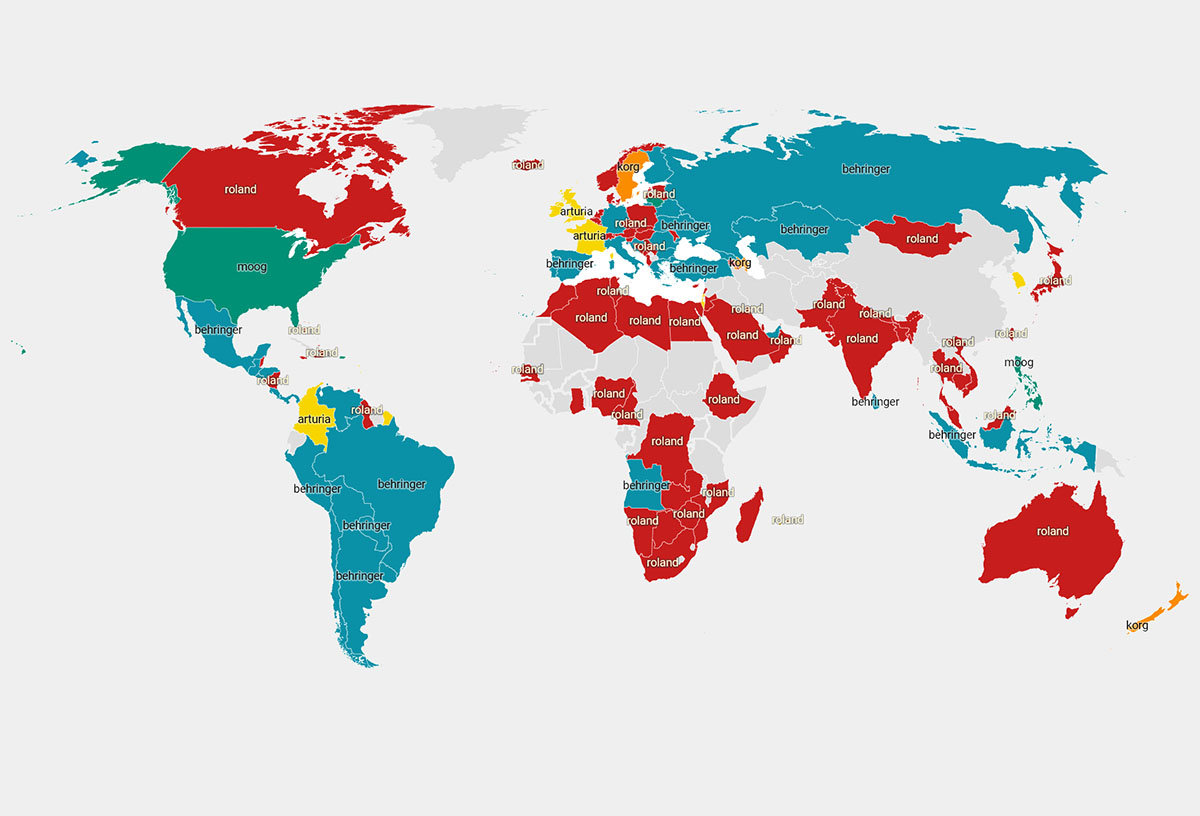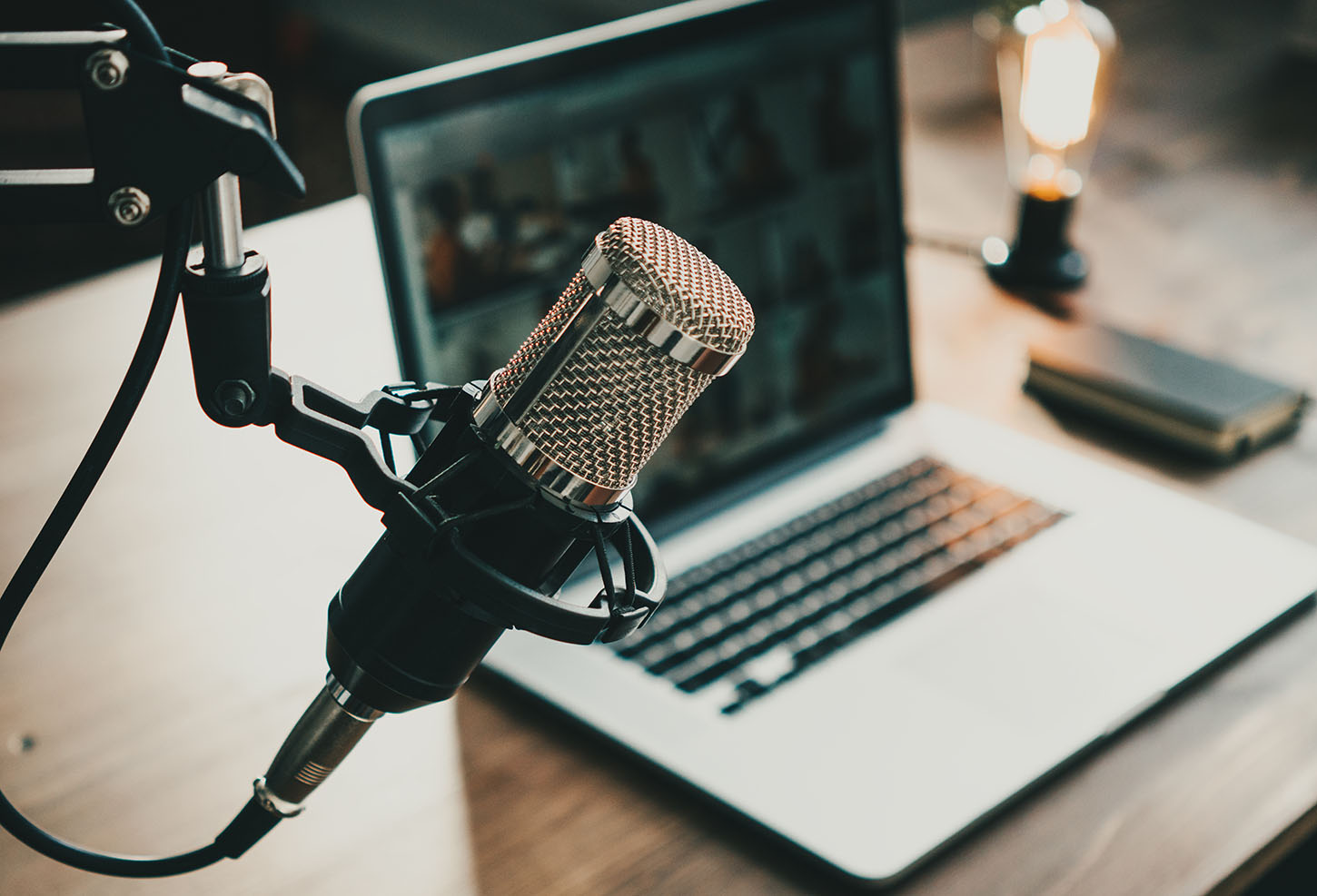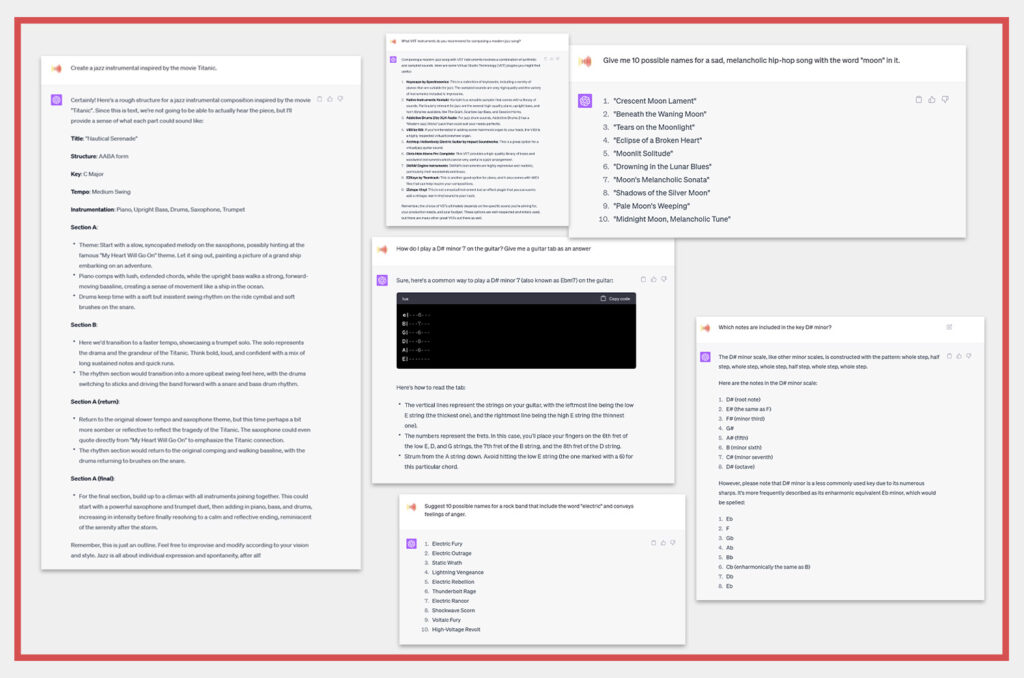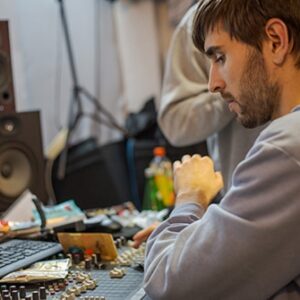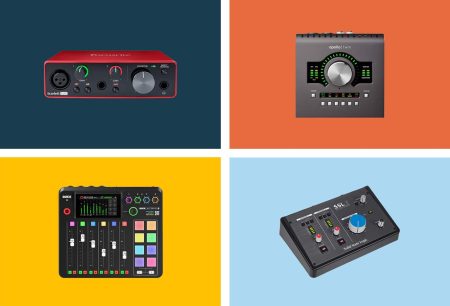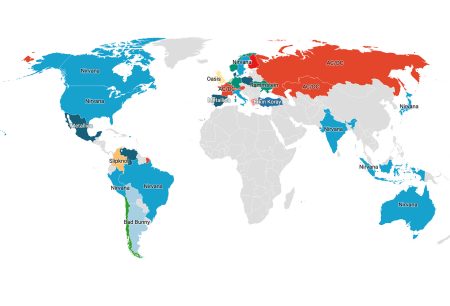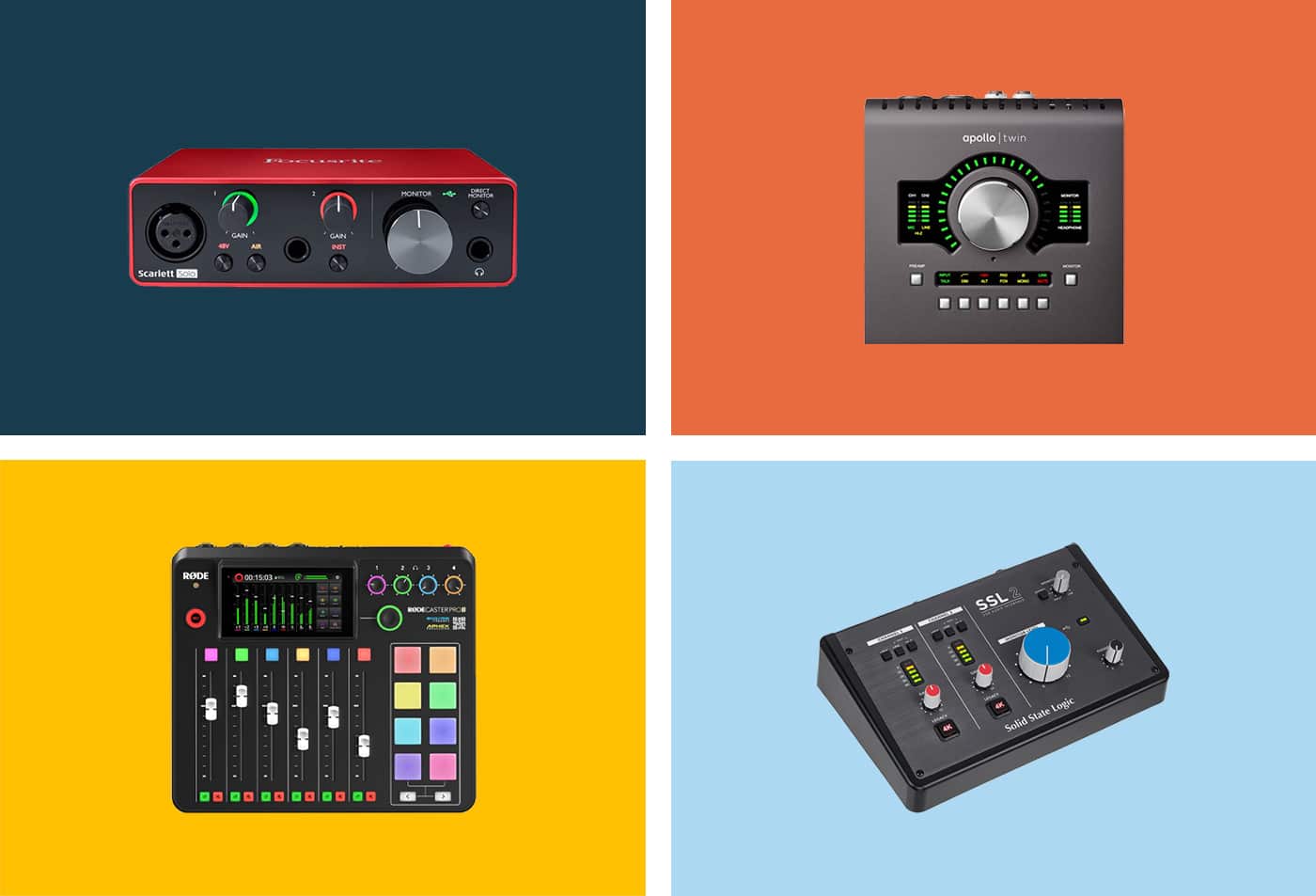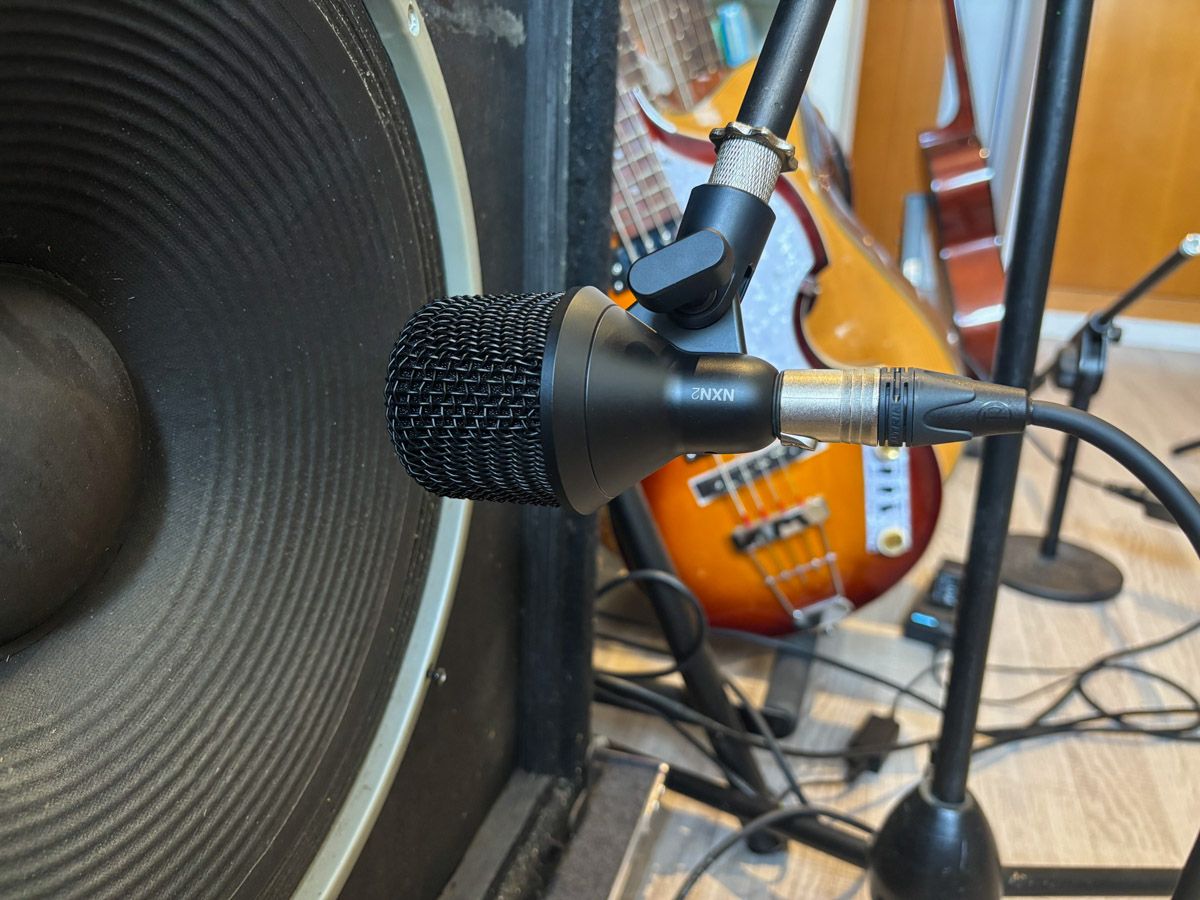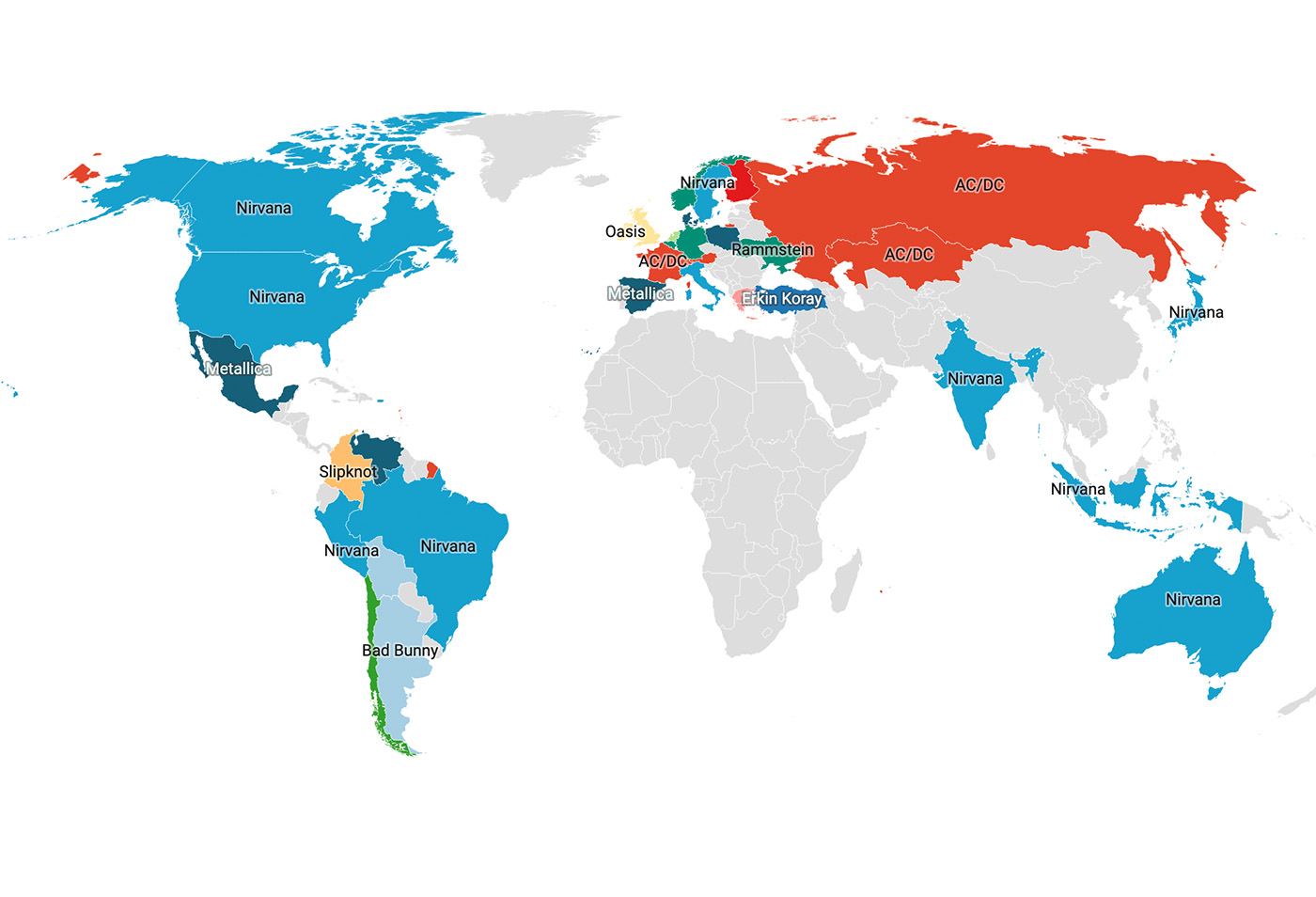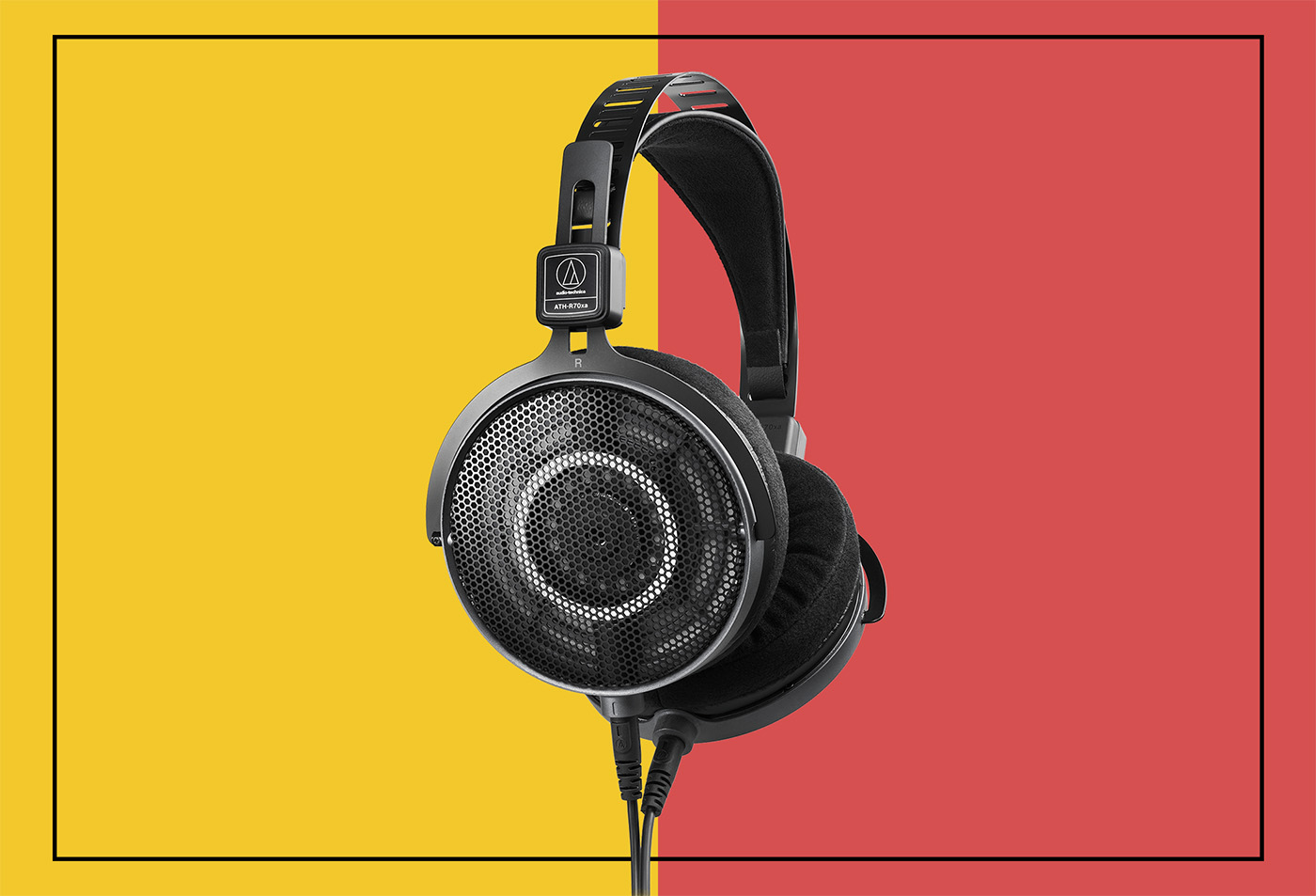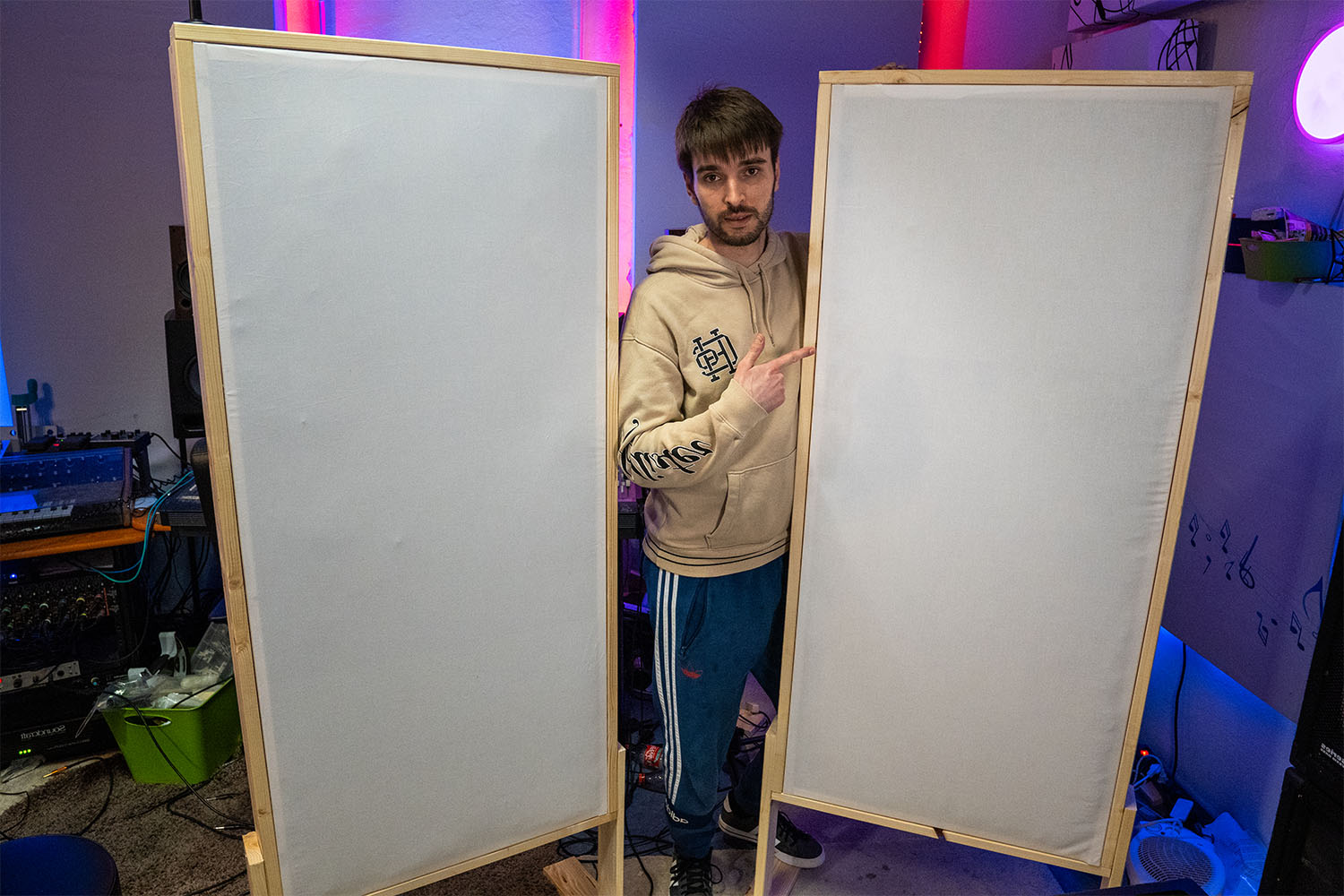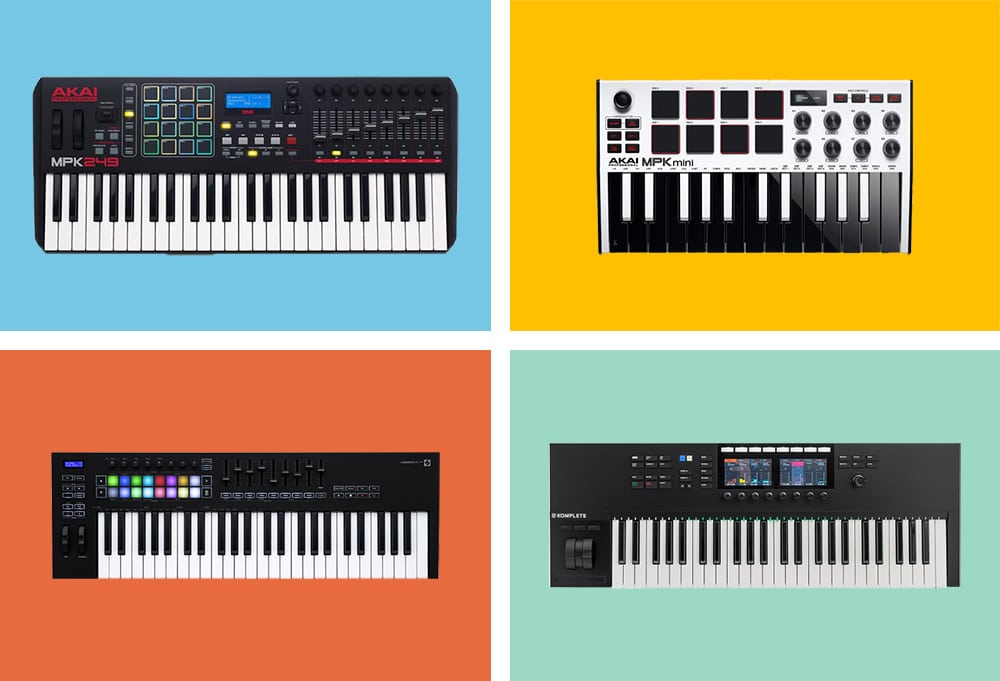ChatGPT can't create audio files (so our jobs as music producers are still safe), but it can provide very good ideas if you create detailed prompts. After all, it knows all about music theory and can work according to its rules and guidelines. So it can't compose a song for you, but it can help you choose chords, for example - chord progressions usually follow the guidelines of music theory.
With ChatGPT it is very important to provide very detailed prompts if you want to get good answers - otherwise you will often get generic and useless answers. You need to provide as much detail and context as possible so that ChatGPT understands what you are talking about.
To use ChatGPT, you just need to open a free account with OpenAI and you can start interacting with the chatbot. There is also a paid version, but for these prompts the free version is perfectly sufficient.
Keep reading: Unveiling Art's Hidden Secrets: The Covert Tech Innovations in Creativity
1. Finding chord progressions
ChatGPT Prompt:
I am composing a [enter genre]-song. My opening chord is [enter any chord here]. I want the song to sound [choose the mood of the song]. Suggest [X] different chord progressions that I can use to compose my song.
This is my favorite ChatGPT prompt for making music, especially when looking for chords for more complicated keys (keys with many accidentals). Of course, I know 3-4 keys like A minor, E minor, G major, etc. well because they have few accidentals.
But when I compose a piece in G# major, I have a very hard time finding the appropriate chord progressions, and this is where ChatGPT can be very helpful:
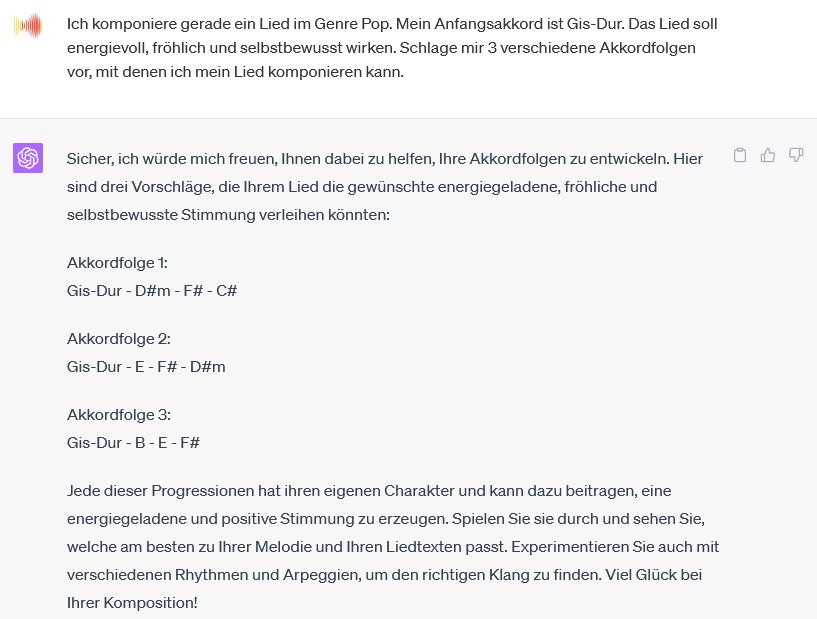
Please note that not all suggestions will sound good, but most will. It is best to try all the suggestions on a piano or guitar before programming complex synth pads or the like!
But that's not all: once we have chosen a chord progression, we can ask ChatGPT to create a bridge (a second chord progression for another part of the song). It's as simple as that:
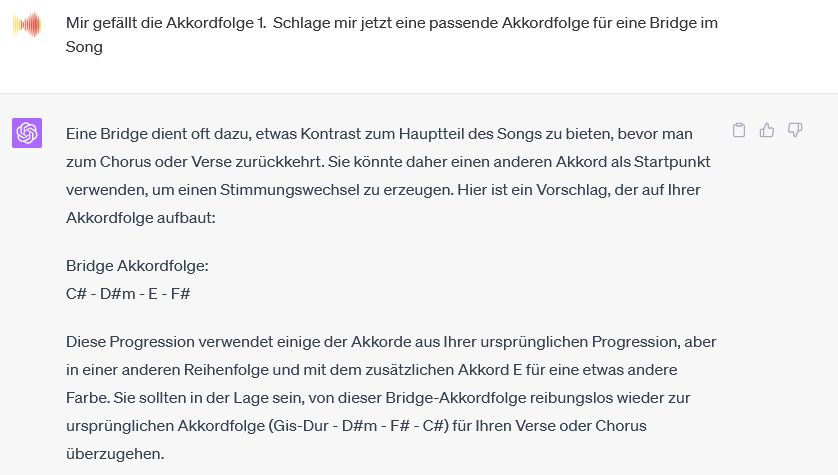
Again, you may have to regenerate the answer a few times until you're satisfied, but hey - at the end of the day, these are free ideas you can try out in 10 seconds.
2. Coming up with name ideas for songs, artists, or bands
ChatGPT Prompt:
Suggest me 10 possible names for a [enter genre] [song/album/band etc.] that [add conditions].
ChatGPT is very helpful in finding/creating names. We musicians and producers are always looking for names for our songs/beats/band/albums etc. and ChatGPT can save us a lot of time.
To do this, you must enter the ChatGPT prompt above and specify as many conditions/context/information as possible. For example, a condition can be a word to be included in the name, a feeling to be evoked, or the language in which the name will be used.
Here are a few examples:
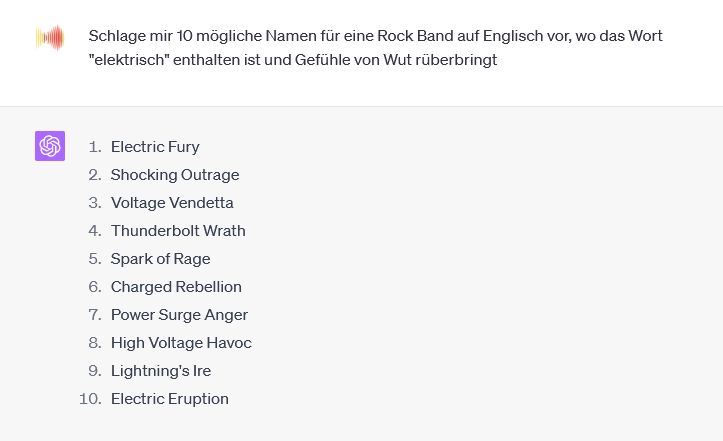
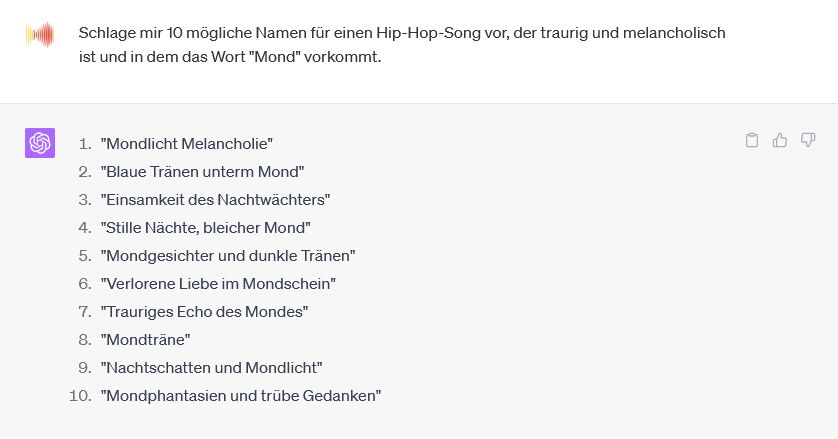
It must be said that the names are generated much better in English than in any other language, but this is because ChatGPT has been trained mainly with English language information.
The more conditions you add, the better the result will be - always remember that ChatGPT doesn't know the context of your band/song/song, and you need to tell it as much as possible.
But if you don't like any of them right away, you can use them as an inspiration/base for generating more names. Here's how:
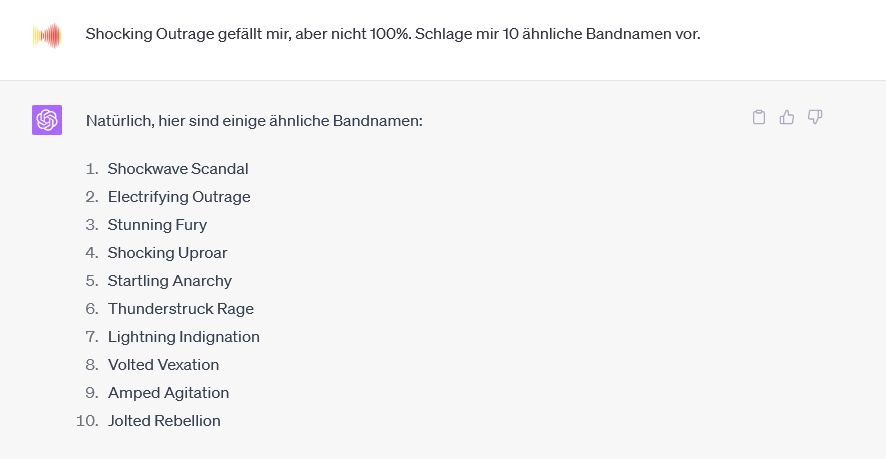
3. Finding the notes of a complex key
ChatGPT Prompt:
Which notes belong to the key [enter key]?
If you are composing another song in a complex key, ChatGPT can help you find the notes that belong to the scale and do not sound dissonant. This is very helpful if you're composing melodies or bass lines, and you don't know off the top of your head which notes go with, say, D-sharp minor.
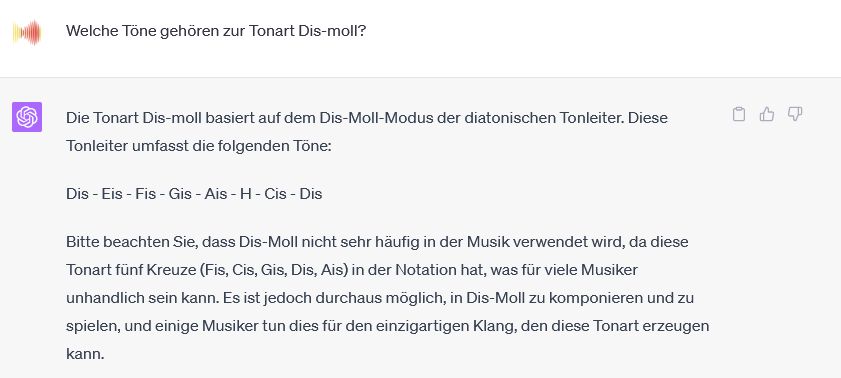
4. Instrument selection for the next production
ChatGPT Prompt:
What [instruments/VST instruments] do you recommend for composing a [enter genre] song?
You can use ChatGPT when you are producing in a new and unknown genre and you don't know exactly what instruments to choose. It can suggest instruments, VST instruments and plugins to produce our piece and the quality of the answers is amazing.
Here are some examples:
ChatGPT prompt: What instruments do you recommend for composing a jazz song?
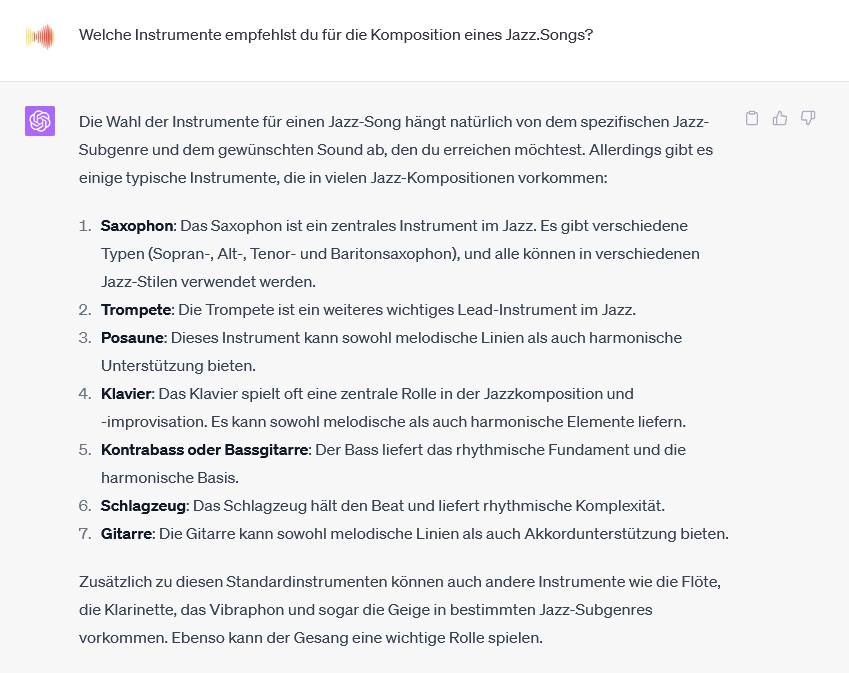
ChatGPT prompt: What VST instruments do you recommend for composing a modern trap song?

ChatGPT can even help us choose the right VST instruments for a particular genre. It also suggests VST effects, which can also be very useful.
These are not necessarily the most difficult questions, because VST instruments are of course part of trap music, and almost everyone knows that wind instruments are very popular in jazz music. But let's make it a little more complicated: What if I want to compose jazz with VST instruments and I don't want to use real brass, pianos, etc.?
ChatGPT prompt: What VST instruments do you recommend for composing a modern jazz song?
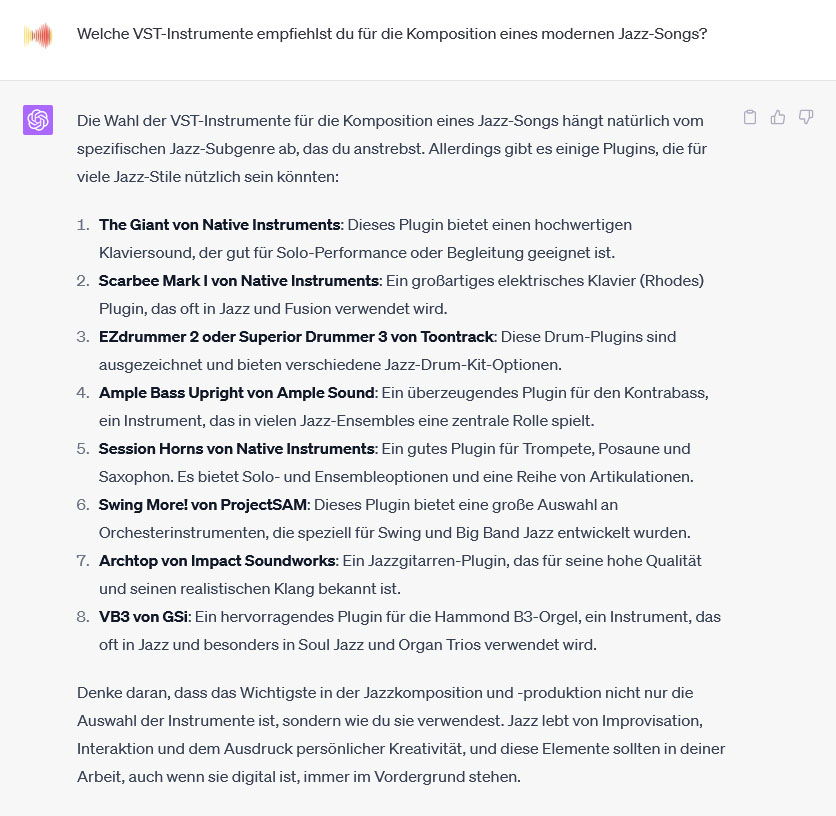
We can go further and ask ChatGPT to only suggest free plugins - there won't be as many suggestions, but the ones that do come will still be good.
5. Finding tabs/chords on the guitar
ChatGPT Prompt:
How do I play a [enter any chord here] on the guitar? Give me a guitar tab as an answer.
This is a very useful feature, because ChatGPT can create tabs for the guitar. So you can just ask him how to play a certain chord on the guitar, and it will show you several possibilities.
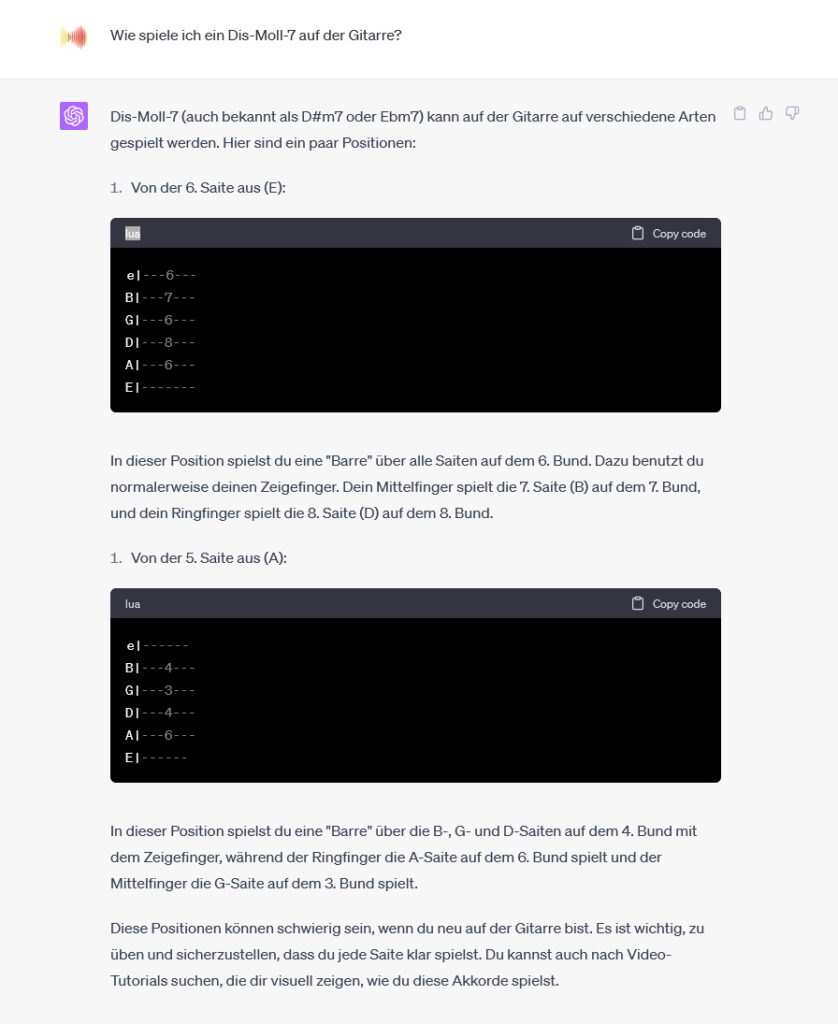
It even gives us tips on how to play the chord, and the answers are surprisingly precise.
6. Creating complete "briefings" or song structures for productions
ChatGPT Prompt:
Create a [Enter genre] [Beat/Song] inspired by [Enter artist]
ChatGPT can actually help us plan the production of our next song, all we have to do is describe what genre we are composing in and what the piece should sound like.
This prompt gives way much better results in English.
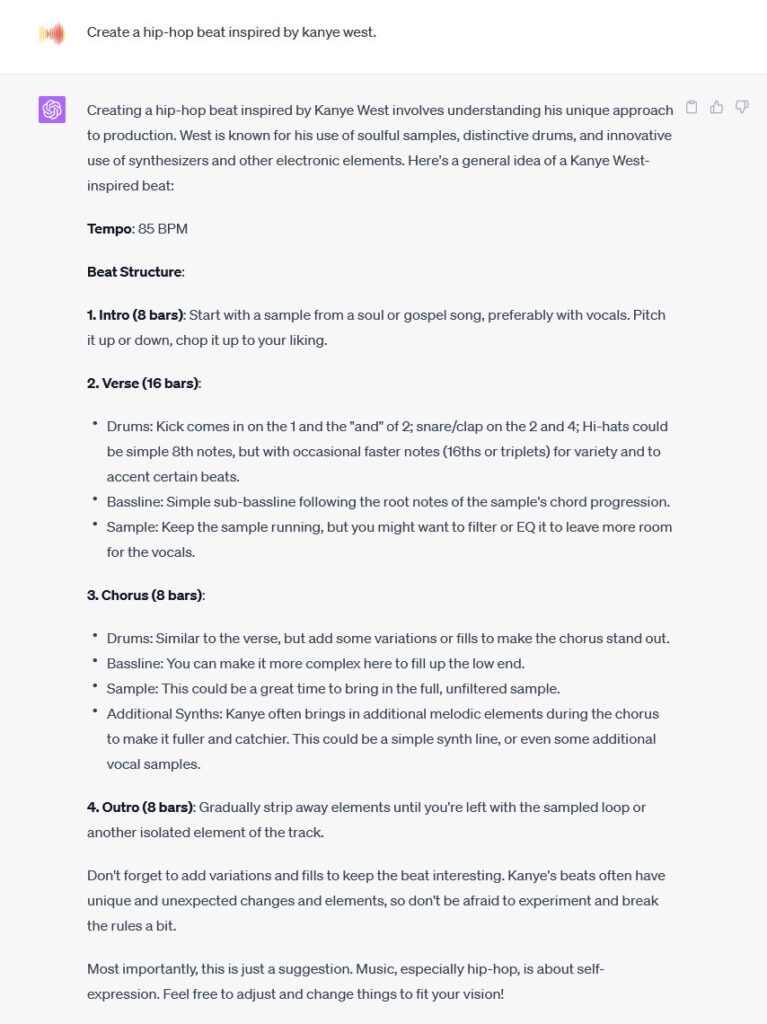
And you can take that as an inspiration or a starting point to start the production. For example, I like the idea of using a gospel sample.
We can also use ChatGPT to produce music for movies or music inspired by a particular movie, and again the results are very interesting.
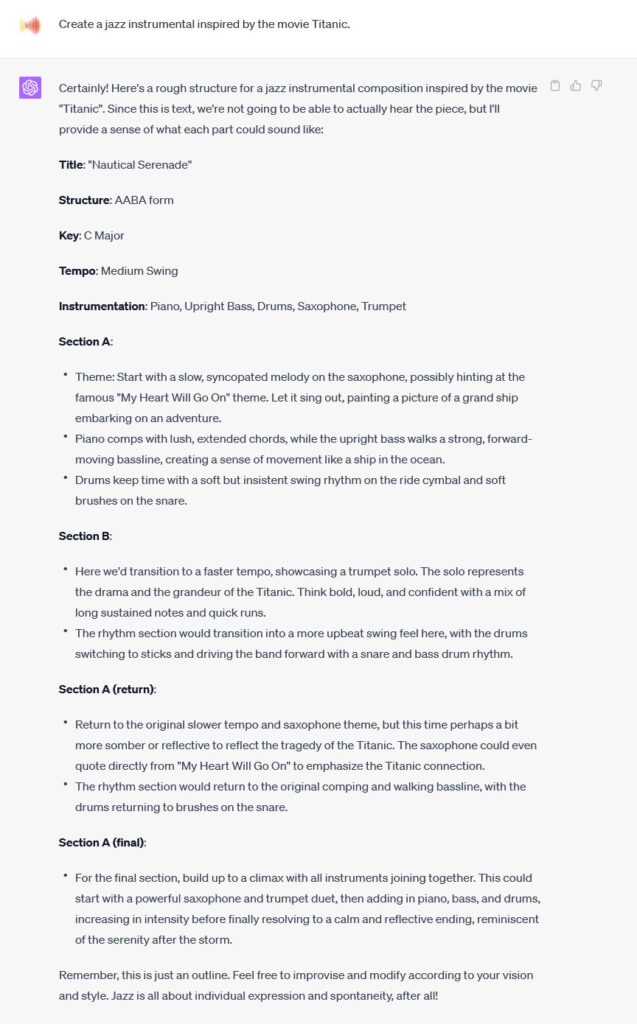
7. To finish writing the lyrics of a song
ChatGPT Prompt:
I would like you to act as a songwriter. I have written a [enter genre] song with [enter existing parts]. I will provide you with the lyrics and based on those lyrics, I want you to write a [enter missing parts] for the song:
[insert lyrics with structure]
Personally, I'm not a fan of having ChatGPT write full lyrics because the results are usually impersonal and don't really connect with the artist.
But if you have already written some parts of your song, ChatGPT can help you continue writing the lyrics and the result will be much more fitting and personal because he will build his lyrics on your existing parts. Just show ChatGPT your existing lyrics and ask him to write the next verse, chorus, bridge or whatever.
Here's an example of a song I produced for a commercial 2 years ago - I want to know how a second verse would sound if ChatGPT wrote it.
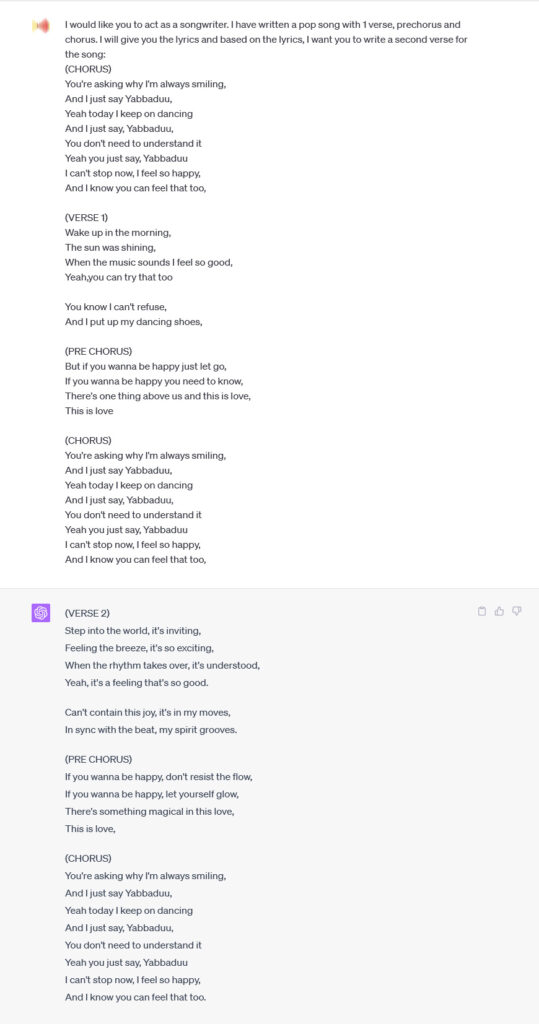
I would never take the second verse 1:1, but there are definitely some good lines and a lot that I can use as inspiration to keep writing myself. So ChatGPT is a kind of "writing assistant".
You can find the finished song (written by me, there was no ChatGPT back then) here.
Conclusion
We are only at the beginning of the AI era and there will be many more tools to make life easier for us musicians and producers. But ChatGPT exists now, and it's free - so let's take advantage of all its possibilities.
